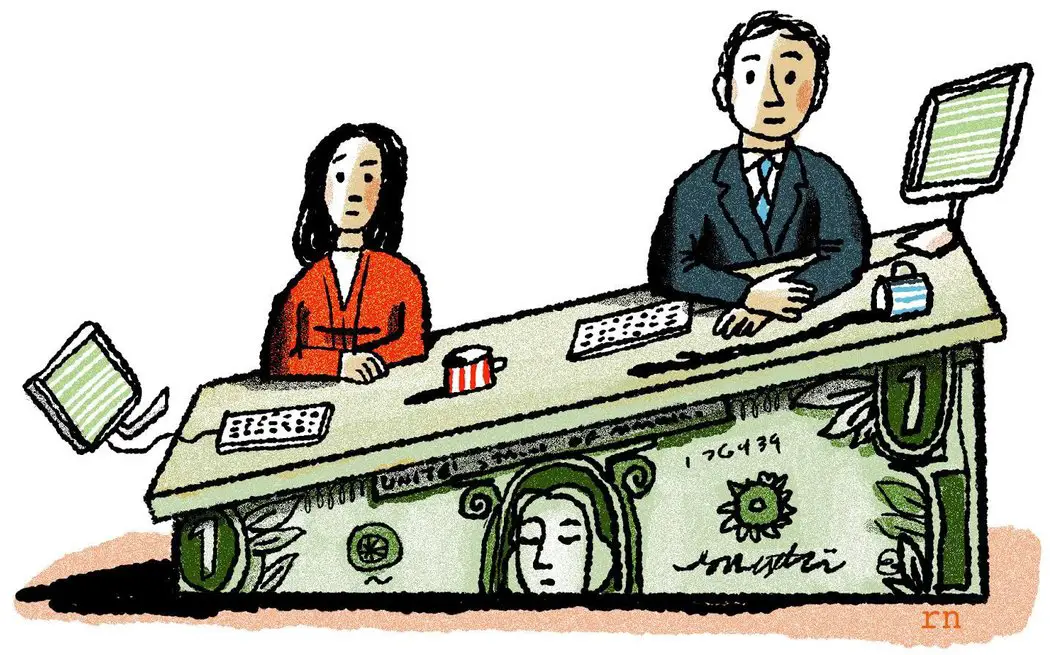Money Matters
Here are three simple ways to help combat the disparity in pay between men and women.
By D’Ariel Myrick, University of Georgia
Unless you’re an Economics major or just generally interested in understanding the economy, you may not realize that there is a prominent gender pay gap.
While you’re in college, you might think, “Well, I just need to pass this calculus course, so what does the wage gap have to do with me?” Even so, the issue is something everyone should understand.
In layman’s terms, the pay gap is a comparison between women’s and men’s typical earnings; however, within this umbrella definition is a web of complex facets that make the gender wage gap a much more complicated beast. Women earn less than men due to occupational differences, familial factors, various hours worked and, simply put, unexplained “drivers” of the wage disparity.

Each factor comes together to create a fairly wide gap between the genders when they look at their paychecks, but what should we do about it? While there are several options, here are three possible solutions that could improve the gender wage gap in America.
1. Raise the Federal Minimum Wage
In 2015, women earned about 80 cents for every dollar earned by men, even though both groups were full-time, year-round workers. The federal minimum wage is currently $7.25 per hour, but women overwhelmingly receive less than their male counterparts. On average, the wage gap for minimum wage employees has fluctuated between approximately 66 percent to 92 percent.
If the federal minimum wage was raised, it would increase overall economic activity because the employees would spend more. Higher income would increase jobs for other corporations because there would be a need for more employees to keep up with the increase in consumer demands across a wide variety of brands and products.
Plus, employees would be happier. Although employers may not particularly care about their employees’ happiness, the overall environment for the customers would improve because the people they interact with would be much more approachable and happier to do their jobs if they felt that they were fairly compensated for their work. Employees would feel appreciated and less aggrieved for having to do tasks when they don’t seem to be reaping the rewards, specifically women.
If a woman really saw the paycheck of her male counterpart, she would likely not work as hard. More importantly, it’s just not fair to pay two different people with the same jobs a different wage. If a woman is paid, on average, 22 percent less than men, then she should not be expected to do the same amount of work as said man. As a minimum wage employee, you are already behind in the economic sphere, so it doesn’t help to be a woman, especially from a minority, who has added struggles.
2. Don’t Hate, Negotiate
It is proven that women do not typically negotiate, especially when it comes to their paycheck; however, by encouraging and practicing negotiation skills, women could help boost the wage gap issue in the workplace.
AAUW’s annual report on the gender pay gap in 2015 stated, “Negotiation skills are especially tricky for women, because some behaviors, like self-promotion, that work for men might backfire for women.”
Moreover, women are not taught to be as assertive as men are when they are growing up. For example, two anchors, one male and one female, decided to see how they would fair against each other to get a pay raise. There were differences in body language and cues that clearly showed how a woman might negotiate her pay raise compared to a male in her same division.
Women must learn how to be more than a stereotype. As young girls, females are usually taught to be quiet, submissive and nurturing, which would make demanding more money a very daunting task. However, this is a new age, and women deserve to earn equal pay. Negotiating with more confidence and assertiveness will increase the chance of a smaller wage gap until it, hopefully, disappears.
One way to change the gender wage disparity would be promoting self-confidence and encouraging women to demand what they deserve. Along with men taking a stand for wage equality, women should put their beliefs into action. By speaking to the boss and asking for what you deserve as a faithful employee, women should be rewarded and accepted as an equal employee to their male constituents.
3. Less Gender, More Quality
While there are many factors that come into play with the gender wage gap, there is also an overwhelming focus on the gender binary, instead of the quality of the work being done by whomever is doing said work.
It should not matter if you are black, white or purple, nor should it matter if you identify as a woman, man or an identity outside of the gender binary. The essential point is that pay should be equal as long as the workers are doing the same jobs for the same amount of time.
Arguments surrounding the wage gap is that women choose more flexible jobs and work less hours than the average man, but there should not be a 22 percent difference in pay if the woman is only working 30 minutes less than the man.

Everyone should be viewed and paid equally. As college students who will soon be out in the job market, the gender wage gap affects everyone. As you get older, wages fluctuate even more because life happens, including having a family. But, if we treat everyone fairly, then there will be no gender wage gap.
America was built on a patriarchy which manifested itself in every aspect of “the American dream.” Women are not twiddling their thumbs anymore; they want to be paid just as much as men, and they deserve it. Women work, have kids and still find time to take care of themselves. As college students, you may not be a full-time working mother, but you or your future partner will come face to face with the gender wage gap.


















[…] 2018, and the United States has yet to see a female president. A wage gap still separates men’s and women’s salaries while invisible stereotypes constantly build walls […]